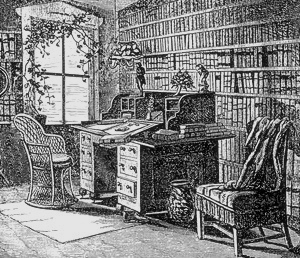Back in 1976, I read Inferno, a science fiction novel by Larry Niven and Jerry Pournelle, which tells the story of an atheistic science fiction author named Allen Carpenter who, much to his surprise, finds himself in a place that very much resembles Dante’s vision of hell in the first book of The Divine Comedy. Carpentier tries to find a rational explanation for what he experiences in his tour through hell, and spends much of the book convinced that he’s in a sort of bizarre amusement park (call it “Infernoland”) created by sadistic aliens with a very high technology. But by the end of the book, Carpenter is finally convinced that he is indeed in hell.
I read Inferno when I was a senior in high school, and I loved the book; I didn’t pay any attention to the theology, I was captured by thinking about what a twentieth century person would do upon finding himself in Dante’s version of hell. Allen Carpenter builds a glider to try to fly over some of the circles of hell, and this is not unlike the heroes of Jules Verne’s The Mysterious Island using their nineteenth century technology to address the problem of being stranded on a desert island. In my freshman year of college, I went out and bought a bilingual edition of Dante’s The Divine Comedy (trans. by John D. Sinclair), and started to read the Inferno; I got about three quarters of the way through, but got tired of Dante getting revenge on people he didn’t like by placing them into his vision of hell.
Last year, Niven and Pournelle came out with a sequel to their Inferno, another science fiction novel titled Escape from Hell. At the end of the earlier book, Allen Carpenter learned that you can get out of hell, so he goes back to try to help lots more people escape from eternal damnation. Niven and Pournelle come up with enough new ideas to make this second book worth reading — their depiction of Hell’s bureaucracy is funny and entertaining — but there are major problems with the book. One big problem is that Sylvia Plath is a major character in this book, but Niven and Pournelle’s characterization doesn’t convince me: their character named Sylvia Plath is just another interchangeable female character, and you simply don’t believe that character is capable of writing great poetry. A second big problem is that rather than actually resolving their plot, they end the book with the ridiculous plot device of having a hydrogen bomb explode in hell.
But the biggest problem I had with Escape from Hell is the theology behind the book. Allen Carpenter discovers that anyone can escape from hell, as long as they’re willing to go through a process of confronting the bad things they did in life — there’s a sort of pseudo-psychotherapeutic element in this process. Even though Niven and Pournelle don’t use the psychobabble jargon of “denial” and “acceptance” and so on, it’s the sort of thing you’d expect from mediocre self-help books.
Niven and Pournelle’s understanding of God is about as interesting as their theological psychology. Their God is probably pleasant rather than definitely good, distant and unimaginable rather than immanent and present, and vague rather than awe-inspiring. Their God-concept feels like it’s straight out of the mid-twentieth century when people presented God as either nice or dead, but when God was rarely presented as something compelling enough to believe in. From a literary point of view, if a writer is going to talk about hell as a reality, I’d take the stern yet interesting God of Jonathan Edwards’ “Sinners in the Hands of an Angry God” — or, for that matter, the God of Dante who invents such creative tortures for damned souls — over the the namby-pamby, wishy-washy, exceedingly boring God imagined by Niven and Pournelle. They make hell seem much more interesting and even attractive than God.
Then there’s the purpose of hell, as the authors understand it. When I think of Dante’s conception of hell, I think of a place of eternal torment; if you’re talking about punishment for sins over a limited time, then you’re talking about the subject of Dante’s second book, Purgatorio, purgatory. Niven and Pournelle borrow Dante’s hell, and turn it into purgatory. So then what’s the purpose of purgatory? I admit my bias: I’m a Universalist, and I know hell is a mistaken concept to begin with; nevertheless, within the limits of their theological logic, their conception of hell simply doesn’t make sense.
So I find Niven and Pournelle’s theology problematic. But that was actually part of the fun of the book: I not only enjoyed the adventure, I argued with their problematic theology the whole way through, and enjoyed every minute of the argument. Unlike the liberal Christian apologists who dodge the whole issue, Niven and Pournelle confront hell head on. In the end Allen Carpenter admits that he can’t really make complete sense out of hell; it’s beyond human understanding; but this didn’t feel like a cop-out to me so much as a literary excuse for a pretty good adventure story.

